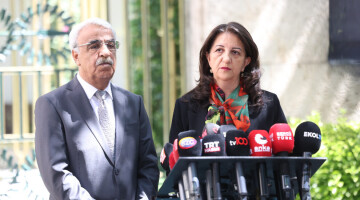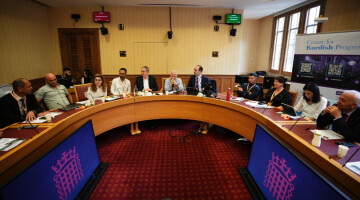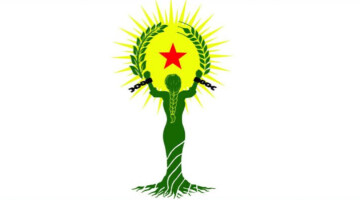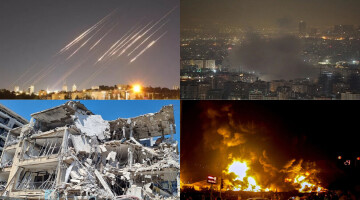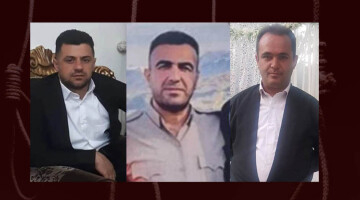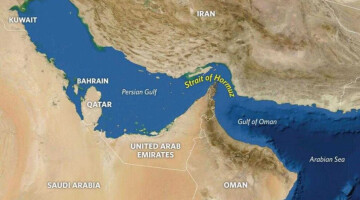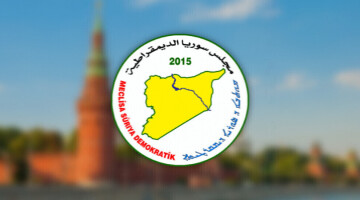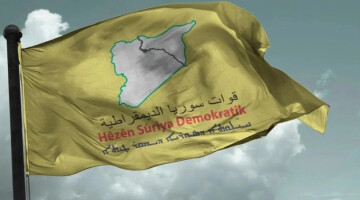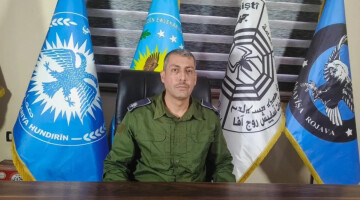Abdulkarim Omar, Co-Chair of the Foreign Relations Department of the Autonomous Administration of North and East Syria, stated that ISIS will not end until a complete stability, and therefore a democratic solution, is achieved in Syria.
Omar pointed out that if Syria adopts a decentralized democratic system, ISIS will no longer be a problem in the long run. He said that international forces and institutions should make efforts for the development of a democratic solution in Syria.
Omar spoke to ANF about the latest ISIS attack on the Sinaa Prison in Heseke and what needs to be done afterwards.
What was the goal of the Hesekê attack?
It was part of a sophisticated and comprehensive plan. The Turkish state and all its mercenaries took an active part, including logistics, planning and intelligence. The aim was to revive ISIS and render the Autonomous Administration system dysfunctional. This plan has been thwarted.
How did ISIS get involved in this plan?
We liberated the areas occupied by ISIS, we defeated them militarily, but we did not say it was over. ISIS has not vanished. There are thousands of ISIS members and their families in the Hol refugee camp as well as thousands of imprisoned ISIS members. ISIS is recovering in Syria, Iraq and the areas under Turkish occupation, seeking geographic expansion. ISIS members infiltrate into our region from these areas. Great powers do not fulfil their responsibilities and they have left us alone to deal with the matter. Such problems are very likely to arise under these circumstances.
A second point is that the Til Koçer Border Gate is closed, and poverty and embargo provide an ideological ground for ISIS. The region needs to be developed economically and the resources of ISIS should be removed. If no measures are taken, ISIS will continue to exist somehow.
The third issue is the Turkish aggression and threat. Air strikes, assassinations, threats of occupation with continuous artillery fire from the occupied areas affect the political, economic and military stability of our region. Instability provides an opportunity for ISIS to resurrect.
What is the approach of international forces regarding the prosecution of ISIS members in the region?
After ISIS was defeated in Baxoz, we asked international forces to prosecute ISIS members and their families. We told them that since they committed crimes here, an international judicial process should be launched by our side. They did not agree with this. No country gave us support in this issue, and no serious work was done. We also asked them to take back their citizens. This issue remains to be resolved, too.
The Sinaa Prison where thousands of ISIS members are held is a former school building. It is not an easy job to keep or control thousands of ISIS members in a school. Thousands of people reside in the Hol refugee camp, and no country has taken responsibility for them. As a result, the prison and the refugee camp became an ISIS hotbed. Especially in the camp, children are trained by ISIS. Considering the bad and inhumane conditions they live in; it is inevitable that these children will grow up with hatred and anger and become ISIS militants.
We express it very clearly: the main reason why these problems are not resolved is that international powers evade their responsibilities.
We have repeatedly expressed in all meetings, talks and statements that everyone must do their part in order to end ISIS.
Aren't there any initiatives taken by international organizations concerning ISIS detainees and children in the Hol Camp?
No. International organizations are as indifferent as international powers.
So, what needs to be done?
The UN and international forces should provide the necessary assistance and support for the prosecution of ISIS members. The states whose citizens are ISIS members and families should seek ways to rehabilitate them after a fair trial. The Turkish state should stop supporting ISIS; their attacks and threats should be halted. In order to support and boost the region economically and politically, it is necessary to save the region from sanctions and reopen the border crossings. Apart from these measures, this should be taken seriously; the ISIS problem cannot be resolved once and for all without complete stability in Syria. International powers and institutions should do their utmost for a democratic solution in Syria. ISIS can be removed only in a stabilized Syria. If Syria organizes itself in a decentralized democratic system, we can prevent ISIS from becoming a problem in the long run. Otherwise, we cannot avoid a further resurgence of ISIS.

